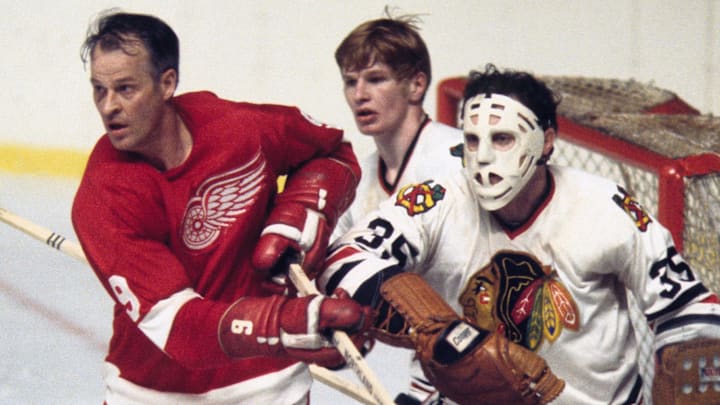The title of worst coach in Detroit Red Wings history belongs to Ned Harkness. To be fair, Harkness was among the most accomplished coaches in American collegiate sports, particularly in hockey and lacrosse.
At Rensselaer Polytechnic Institute and Cornell University, he didn’t merely win—he built dynasties, capturing multiple NCAA championships and engineering the only perfect season in NCAA hockey history.
However, when he made the ambitious leap to the National Hockey League in 1970 to coach the storied Detroit Red Wings, the results were nothing short of catastrophic. What followed was not a seamless transition from college brilliance to professional success, but a spectacular unraveling—proof that even the most lauded résumé cannot guarantee credibility in a radically different arena.
Ned Harkness angered his star players
In retrospect, it is genuinely unfortunate that Harkness's tenure with the Detroit unfolded as disastrously as it did. To be clear, Harkness was not a bad coach in any technical or strategic sense. Rather, he possessed a coaching philosophy that thrived in a particular context—namely, the collegiate environment—but proved ill-suited to the professional ranks.
Compounding this mismatch was Harkness’s apparent unwillingness to adapt. Ironically, one might argue that his greatest liability was his own overwhelming success. That may sound counterintuitive. After all, how could winning too much possibly be a problem? Yet the psychology of unchecked success can be deceptive.
When a coach dominates at the level Harkness did—winning championships, engineering undefeated seasons, and earning national acclaim—it can foster a dangerous sense of infallibility. At some point, you stop evolving.
You no longer question your methods. You become, in your own mind, the finished product—untouchable, unimpeachable, Mr. Perfect. Besides, he had just led the Big Red to a perfect 29–0–0 season—the only undefeated, untied season in NCAA hockey history. His head was the size of Joe Louis’ fists at this point in history.
But as Harkness's NHL experience demonstrated, success in one arena does not always translate to another.
Consider the landscape he was stepping into. College hockey in the late 1960s required strict discipline. Coaches were dealing with young men—often immature, impulsive, and in need of structure.
Harkness's hard-nosed approach, complete with behavioral rules and tightly controlled systems, was precisely what that environment demanded. And it worked. Repeatedly.
However, when he arrived in Detroit, he applied the same methodology to a roster filled with seasoned professionals—legends like Gordie Howe and Alex Delvecchio among them. These were not 19-year-olds looking to prove themselves.
They were grizzled veterans, champions in their own right. To them, Harkness’s immediate imposition of strict regulations—banning smoking, drinking, swearing, and enforcing dress codes—must have felt insulting. One can easily imagine the sentiment reverberating through the locker room: Who does this (insert cute profanity) guy think he is?
Harkness had no pro coaching experience
What Harkness fundamentally failed to grasp was that respect in the NHL is not imposed through decree or rigid rulemaking—it is earned through demonstrated credibility, adaptability, and a nuanced understanding of the professional game's cultural and psychological complexities.
His inability—or refusal—to recognize this distinction proved catastrophic. In many ways, Harkness was to the Red Wings what King John was to medieval England: an unparalleled disaster, whose reign ushered in rebellion and decline from the moment he set foot in the Detroit locker room, Harkness alienated the very players whose trust and cooperation he most needed.
The team finished dead last in the East Division with a dismal 22–45–11 record. Fan attendance plummeted, media scrutiny intensified, and the internal dysfunction reached historic levels.
To those who view the modern Red Wings with a degree of skepticism or frustration, it's worth remembering that there was a time when the franchise’s turmoil was much worse. Living through the Harkness era wasn’t merely to witness organizational dysfunction; it was to experience it in its most distilled and bewildering form.
Once again, it bears emphasizing that Harkness likely meant well. By all accounts, he was a brilliant and disciplined coach at the collegiate level, where his methods produced historic success. But his lack of professional coaching experience ultimately proved to be his undoing.
The transition from guiding student-athletes to managing seasoned professionals requires more than tactical knowledge—it demands emotional intelligence, adaptability, and an intrinsic understanding of the league's culture.
Thus, when fans today express concern over NHL coaches lacking prior professional experience, such skepticism is not without precedent. History, as exemplified by the Harkness era in Detroit, demonstrates that even the most accomplished resumes outside the NHL do not guarantee success within it.
More from Octopus Thrower
